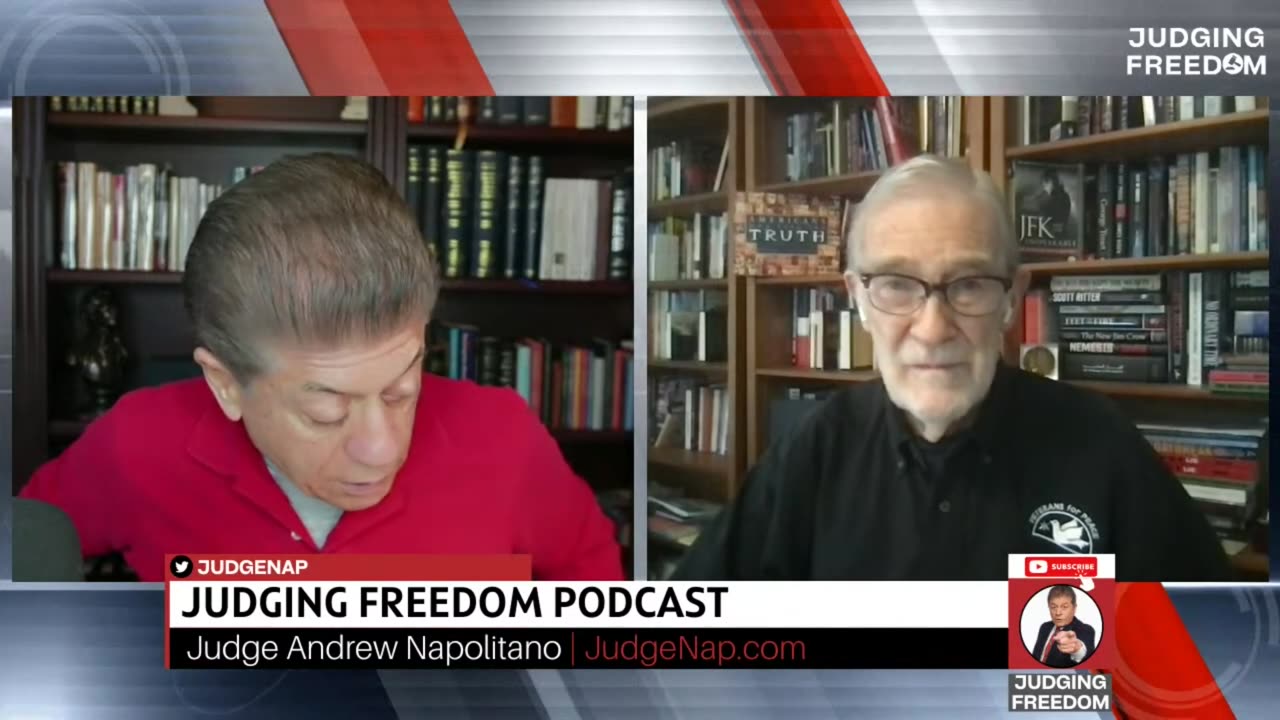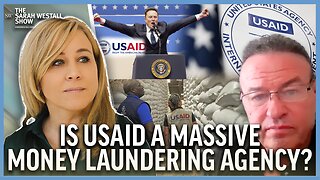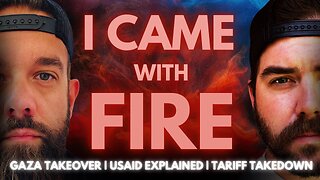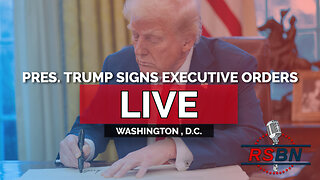Premium Only Content

Provoked: Russian Dilema whether to return NATO missiles
The outgoing president Joe Biden, authorised the use of US Satellite targetting systems, and programming codes to guide missiles deeper into Russia. This appears to be an attempt to continue the US support of the war past the end of his term of office. England and France support the continuation of the war in Ukraine. Ukraine itself is now considering peace, although technically according to Ukrainian law, it is illegal for Ukraine to negotiate with Russia. The method used in an attempt to extend the war indefinitely was to supply British and US short range missiles to attack cities further into Russia (up to about 300kms).
Vladimir Putin argues (probably legally correct under international law, his specialist field of expertise) that this constitutes an act of war, which means he may retaliate against the suppliers of the weapons. To deter the new missile strikes by NATO further into Russia, Russia notified the US of a "ballistic" style missile launch, to prevent it being mistaken for a nuclear weapon. The missile which was non-nuclear, but nuclear capable is unable to be stopped by any known means. It has intermediate range, and therefore can target military sites anywhere in Europe.
The Europeans are unhappy. Various news papers, and former US generals, supposedly independent from government, but often used to voice a government opinion without political blow-back, are suggesting France and England send ground troops, or deliver nuclear weapons to Ukraine. These things are unlikely, but such bellicose reports by respected officials do not improve stability of the military security of either Europe or Russia.
Vladimir Putin does not want to engage in war with NATO because war with NATO has the potential to escalate to using nuclear weapons. Yet, Putin is probably unable to resist internal political and public pressure if significant numbers of Russian civilians are harmed. Putin in response to the ATACMS and Stormshadow NATO missile strikes, launched the Oreshnik missile (an intermediate range nuclear capable missile) against a fortified missile manufacturing plant in Dnipro.
The Oreshnik missile is blurring the line between nuclear and non-nuclear weapon systems in terms of destructive damage. The reason for this is three fold, first the amount of kinetic energy in these missiles is very large, and second although the range of the blast radius is small compared with nuclear weapons, the weapon is very precise. Therefore it is unnecessary to have a wide blast radius because it can remove military targets, and probably underground targets that previously would have been considered impenetrable. Third, due to the speed of the missile (Mach 10 or more) it can not be stopped by missile defence systems i.e. Europe is unprotected.
The new class of weapon creates a problem for Europe, it doesn't have a comparable weapon system that is as powerful, except for nuclear weapons. Therefore Russia would likely cause extensive damage to NATO without using nuclear weapons, if a war were to occur. That said, it appears that Russia would prefer an arms control agreement and a return to the mutual security nuclear treaties that de-escalated tensions during the cold war era. This is very reasonable (and in Russia's 'personal' interest) as eventually these weapons will become common place. With strategic class weapons, it is preferable to have "Trust but verify" agreements that provide mutual security both to Russia and Europe, rather than the alternative of an arms race, where it is uncertain who will win, or whether someone might decide when they gain an advantage that the best option is to go to war. While mutual security agreements can not prevent war, they can remove the possibility further away. Currently most of the security agreements have been removed, and we are closer to the destruction of the planet by nuclear war than we have ever been.
-
 LIVE
LIVE
Melonie Mac
1 hour agoGo Boom Live Ep 36!
367 watching -
 1:02:11
1:02:11
Sarah Westall
1 hour agoFreezing USAID & its Operations in Ukraine: A Massive Money Laundering Organization? w/ Sam Anthony
7.47K1 -
 LIVE
LIVE
The StoneZONE with Roger Stone
1 hour agoRoger Stone Talks Trump’s Electric First 100 Day Agenda | The StoneZone w/ Roger Stone
436 watching -
 DVR
DVR
Redacted News
4 hours agoBREAKING! EPSTEIN LIST INCOMING UNDER AG PAM BONDI? DEMOCRATS FREAKING OUT, PRINCE ANDREW NERVOUS
130K159 -
 52:02
52:02
Candace Show Podcast
6 hours agoBecoming Brigitte: An Inaccessible Past | Ep 2
104K128 -
 LIVE
LIVE
2 MIKES LIVE
4 hours ago2 MIKES LIVE #176 News Breakdown Wednesday!
144 watching -
 LIVE
LIVE
I_Came_With_Fire_Podcast
5 hours agoGAZA TAKEOVER | USAID EXPLAINED | TARIFF TAKEDOWN
507 watching -
 37:14
37:14
The Based Mother
6 hours agoFULL OF IT! Crooked politicians say they care about children. Their actions tell a different story.
6.96K2 -
 1:54:12
1:54:12
Right Side Broadcasting Network
9 hours agoLIVE: President Trump Signs EOs; Pete Hegseth Meets with Netanyahu - 2/5/25
114K47 -
 1:51:41
1:51:41
Dr. Drew
7 hours agoPsychics Investigate DC Black Hawk & Philadelphia Medical Plane Crashes w/ Zach Vorhies + Eddie Conner & Andrew Anderson – Calling Out w/ Susan Pinsky – Ep 166
67.5K20